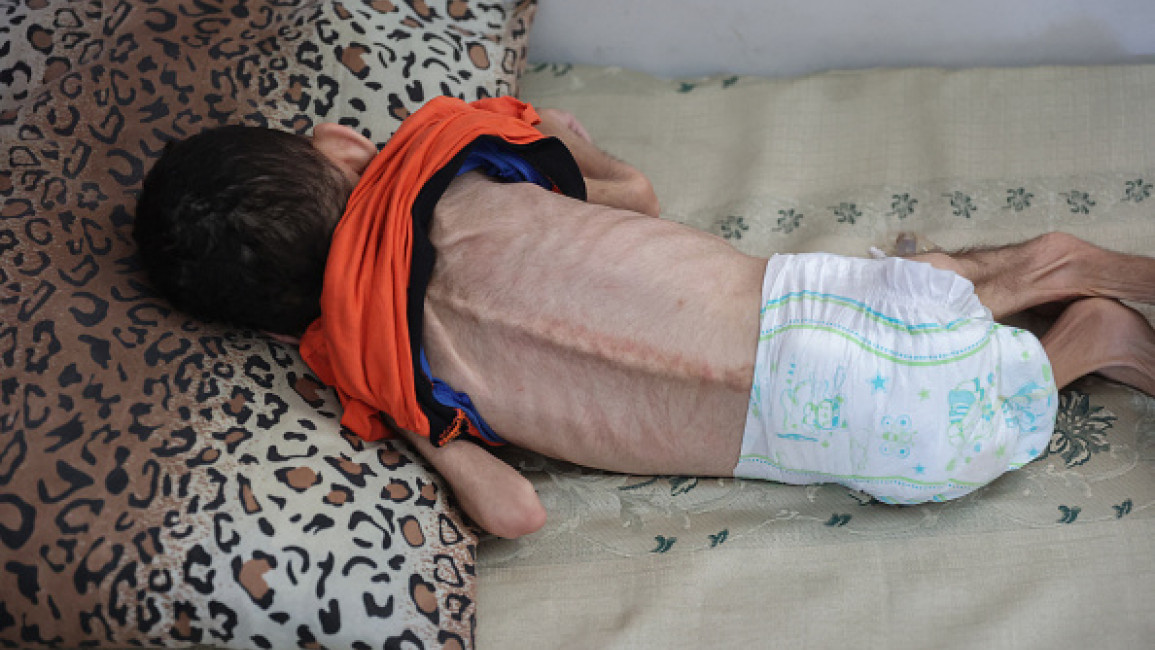UNRWA: Over 50,000 Palestinian children need treatment for acute malnutrition
The United Nations Relief and Works Agency for Palestine Refugees (UNRWA) reported on Saturday that over 50,000 children in the Gaza Strip urgently need treatment for acute malnutrition.
In its statement, the agency highlighted the severe impact of ongoing restrictions on humanitarian access, leading to widespread hunger and deteriorating conditions in Gaza.
This comes as UNRWA warned in March that acute malnutrition was already accelerating in the north of the besieged enclave among children. According the UN agency, one in three children under the age of two in northern Gaza are acutely malnourished.
"Over 50,000 children require treatment for acute malnutrition," UNRWA said in its latest statement.
Underscoring the critical situation, the agency also noted that the overall situation is catastrophic and emphasised the dire need for immediate intervention and support to address the escalating crisis.
The largest aid organisation operating in Gaza accused Israeli authorities of blocking aid deliveries frequently, as well as hindering its operations in the devastated territory.
Tamara Alrifai, the director of external relations for UNRWA, told British news publication The Guardian that there has been limited success in securing aid delivery and movement permits within Gaza.
"We are getting very few positive responses to our requests for aid delivery and permits to move around Gaza," she told The Guardian.
Alrifai added that while UNRWA remains in contact with COGAT, the Israeli agency responsible for overseeing Palestinian territories and coordinating with aid organizations, she says that this communication often falls short of yielding positive outcomes.
"This contact doesn’t always bring positive results – as we can see, from the obstructions to delivery, to our ability to receive [aid] trucks," Alrifai added.
On Friday, G7 leaders said that the UN Palestinian refugee agency must be allowed to work unhindered in war-torn Gaza, in a statement at the end of their talks in Italy.
"We agree it is critical that UNRWA and other UN organisations and agencies' distribution networks be fully able to deliver aid to those who need it most, fulfilling their mandate effectively," the Group of Seven nations said.
They called for all parties to facilitate "rapid and unimpeded passage of humanitarian relief for civilians in need" in Gaza, particularly women and children.
"Securing full, rapid, safe, and unhindered humanitarian access in all its forms -- consistent with international humanitarian law, and through all relevant land crossing points, including the Rafah crossing, through maritime delivery routes, including through Ashdod Port -- and throughout all of Gaza remains an absolute priority," they said.
UNRWA, which coordinates nearly all aid to Gaza, has been in crisis since January, when Israel accused about a dozen of its 13,000 Gaza employees of involvement in the October 7 Hamas attack.
That prompted many governments, including top donor the United States, to suspend funding to the agency, threatening its efforts to deliver aid in Gaza, although several have since resumed payments.
An independent review of UNRWA, led by French former foreign minister Catherine Colonna, found some "neutrality-related issues" but said Israel had yet to provide evidence for its main allegations.
In a draft statement, the G7 leaders repeated concern at the "unacceptable number of civilian casualties" in the war on Gaza, now into its ninth month. They again endorsed a truce and hostage release deal.
Israel's war on Gaza has killed at least 37,296 people, mostly civilians, according to the territory's health ministry.







 Follow the Middle East's top stories in English at The New Arab on Google News
Follow the Middle East's top stories in English at The New Arab on Google News


